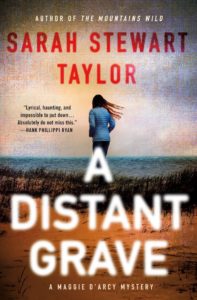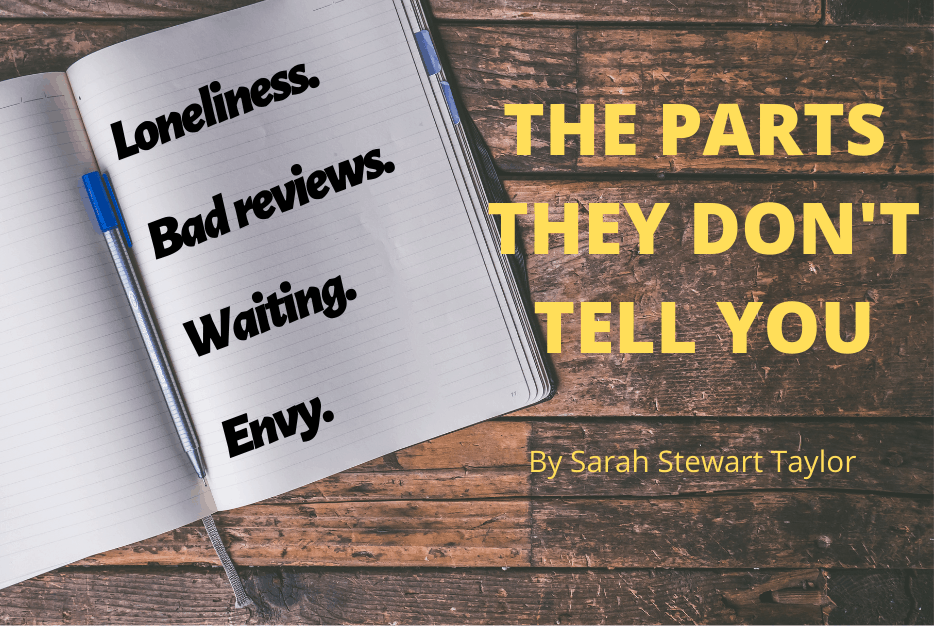I was at a social event recently with a casual friend who had just published her first book. Everyone was congratulating her and telling her that she must be so proud of what she had accomplished. She smiled and accepted the congratulations graciously, saying all the right things about being so happy that the book she’d worked so hard on was finally out. Finally, I had a quiet moment alone with her and I added my congratulations and then said, “How are you really doing? It’s a strange experience, isn’t it?”
Her eyes widened and she burst into tears. “It really is. No one told me. I feel like I should just be overjoyed but it’s… mixed. What’s wrong with me?”
I have now published nine novels and while I love reading insightful essays about craft as much as the next writer, I have recently been thinking a lot about what I like to call the emotional landscape of writing and publishing. If you search for “Advice for Writers” or peruse the “Writing How-To” section of your local bookstore or library, you’ll find more information than you ever needed about how to write query letters, how to work with an agent, how to create compelling characters or realistic dialogue, how to promote and market your books, and how to be more productive. But no one ever talks about the complicated emotions of being a published author (or wanting to be a published author). My friend’s word, mixed, was such a great way of describing the satisfaction and joy, but also the other parts of writing and publishing books.
Great Expectations
My first job out of graduate school was as an assistant at a literary agency that represented a stable of well-known authors, more than a few of them household names, and I have often thought during my career as a published author how grateful I am for that experience. It helped me to understand how writers put together a writing life, combining scribing with the necessity of earning a living and caring for and being present for loved ones. I saw writers navigate financial setbacks, illness, scandal, the deaths of family members and friends, and divorce. Being a published author didn’t make any of those things any easier.
That job exploded any illusions I had that publishing a book would solve all of my problems. If anything, the extremely successful authors I worked with seemed to have less satisfaction with their careers than the only moderately successful ones we represented. Certainly, financially and critically successful authors found that the stakes were suddenly much higher, the consequences of failure more weighty. But they also sometimes seemed to be paralyzed by their successes.
I noticed that their happiness about stellar sales figures or a highly coveted review seemed . . . short lived. And working with them, I noticed something else. When I read their manuscripts and praised a particular line of prose, a well-structured argument, or an ingenious plot development, that was when I heard something in their voices that sounded like actual happiness. There was a profound moment of connection, when I, the reader, reached out to tell them, the writer, that I heard them, that I got what they meant.
We sometimes forget that we are writers because we want to share. We want to communicate, to be heard, to be gotten. Over the years, I’ve learned that the moments I feel a reader has understood me and what I’m trying to do are the moments when publishing books makes me truly happy. It would be overly simplistic to say the rest is just icing, because for many of us that icing determines whether or not we will have a career, whether or not we can afford to keep making books. But it’s the act of sitting down every day and sharing what’s in my head, the moments when the words are received and understood that actually feed my soul.
Loneliness
Being a writer is lonely. It just is. We spend our days all by ourselves, writing down the things we see and hear in our heads. Many of us like it this way, but the problem is that it can feel like you are the only one going through whatever it is you’re going through. When I was querying with my first novel and trying to find an agent, I thought there was no fresher hell than the experience of waiting weeks or months for an answer and then being rejected. Little did I know that waiting weeks or months and then never hearing anything at all was even worse. The only logical conclusion was that I was a terrible writer and that the entire publishing industry was laughing at me, at my audacity in thinking I could ever publish a book.
I imagined all the editors, walking down Manhattan street, greeting each other with hilarious stories about how they couldn’t believe that this terrible, terrible writer named Sarah thought she might be published someday. Ha ha, they would laugh. Ha, ha, ha! This is what spending a lot of time alone does to you.
But then I talked to a friend who was also querying and we discovered that we were having the exact same experience. It was still hard waiting to hear, but at least I wasn’t doing it alone.
There’s a reason why aspiring writers love to read accounts of famous authors who were rejected many, many times before finding success. It helps you to feel less alone when you’re stuck in the purgatory of waiting. Reach out to others who are at the same stage of publishing that you are. Create professional communities, make writer friends, create emotional support networks. Tell your agent or your editor about your low moments and let them assure you you’re not the first author to feel this way. Don’t try to do it alone.
Waiting
Speaking of which . . . Waiting is hard. I guess that other careers must involve some waiting too, but in publishing it feels like you are always, always waiting for something, to hear about a submission, to see your cover, for the early reviews, for publication day to come. And then it all starts again.
So, here is my advice. You need some things to do while you wait. You really do. Hug your kid, or your dog, or your ferret. Throw yourself into your day job. Go for a walk. Volunteer at a senior citizen center. Garden. Clean your refrigerator. Read other authors’ books and tell them how much you loved them. Tell everyone.
I do some of these things. I also raise sheep. Our sheep are kind of a pain. They are constantly needing to be fed or moved or vaccinated or de-wormed or whatever. But I don’t think about my in-box or my sales figures when I am doing these things and I am grateful beyond measure for that. Except sometimes during lambing season, when I am up all night . . . waiting.
Reviews
Reviews can drive us crazy. They are our life blood and our Kryptonite at the same time. We need them to get the word out about our books and a good one can keep you going for weeks or months. A bad one can send you reeling and make you want to throw your work in progress on to the trash heap.
My best piece of advice regarding reviews is to know yourself really, really well. How emotionally strong are you at the moment? How good are you at taking criticism? Really? Be honest. I have some writer friends who never read their reviews at all. They have their agents or spouses filter everything and pass on only words of praise, or nothing at all. This is a completely reasonable approach. It would never work for me. I want to read my reviews. This may come from my training as a daily news reporter. I got used to having my work torn apart by editors and I developed a fairly tough skin during those years. If a professional reviewer has taken the time to read my book and write about it and that review is out there in the world, I want to know what it says.
But what I have learned is that I have to pick my moment carefully. If I’m feeling on top of the world because I just had a fantastic writing session, then bring it on. But, if I’m feeling down and I’ve been struggling with my work in progress and wonder if I’ll ever finish a book again, that is not the time to check my Google alerts and see what people have been saying about me.
And when it comes to reviews on online retailers or sites like Goodreads, you have to be very clear with yourself about why you’re there. Goodreads is a place where readers share their unvarnished, unfiltered, highly subjective thoughts about books with each other, to help each other decide what to read next. Those reviews are really not for us, the authors. When I am reveling in a rare moment of extreme emotional strength, I sometimes get some valuable feedback from reading a wide selection of my Goodreads reviews. Sometimes I can pick up patterns or commonalities that will help me to make my next book better. But I’ll say it again. Those reviews are not for us. And it should go without saying that you never, ever respond to a negative review! Never! No matter how hurt you are. I know you want to. Don’t do it!
Envy
It’s the dirty little secret of being a published author. We love our fellow writers so much. We want all the best things for them. All of them! And yet, one day you’re going to be mindlessly scrolling and you’re going to see that another writer got something you wanted, a spot on a bestseller list, a glowing review from a reviewer you admire, a movie deal, a nomination for an award, a seat on a panel. You’re going to feel happy for them, but also . . . envious.
The best way to handle professional envy is to lean into it. Feel it, let it sit with you for a bit, don’t push it away. Let it help you identify the things on which you want to work hard. Let it inspire you. Then, pick yourself up and celebrate the thing that other person got. Share it, shout the news from the rooftops, write them a congratulatory email. Send some love and celebration out into the world, the more the better, because the world needs love and celebration.
Find Your Joy
When I look back on my writing career so far, there are a few moments that stand out: The day that, after querying fruitlessly for a year and a half, I signed with my first literary agent. The call from that agent about my first book deal. More recently, the call from my agent that a new book — my first in years after stepping away to raise children and struggling to “on ramp” back into my former career as a novelist — was going to be published. The days I heard about wonderful reviews.
But one that sticks out as particularly joyful was the day just about twenty years ago now when I called in sick to work and stayed home to print out the manuscript of my first finished novel. After much querying, I had just received my first request for a full manuscript from an agent. It took hours to print that sucker out on my late-1990s, incredibly slow inkjet printer. I think there was ice cream involved but what I remember most of all was that tall stack of warm pages and the satisfaction I felt when I slid them into a manuscript box to send off to the agent, who in the end didn’t take me on. But that day, I felt such a sense of accomplishment. I had done it. I had written a book. It felt sweet because, I see now, because it was related to the only part of this crazy business that I have any actual control over. The writing.
After my casual friend and I chatted for a bit about how strange it felt for her to have her book finally out in the world, I gave her the best piece of advice I’ve got in my tool kit, the one I come back to again and again, whenever the complicated emotions of publishing threaten to swamp me.
“Have you got another idea?” I asked her.
“Well, actually . . .” she started.
I stopped her. “Don’t tell me. Start taking notes,” I said. “Start getting your thoughts down on the page. Get working on your next book.”
**
Okay, career writers, what advice would you give an aspiring writer about the emotional landscape of writing and publishing? What have been your hardest — and best — moments as a writer? Let’s talk about it on the Career Authors Facebook page!
 Sarah Stewart Taylor is the author of the Maggie D’arcy novels, about an American homicide detective in Ireland, and the Sweeney St. George novels, about
Sarah Stewart Taylor is the author of the Maggie D’arcy novels, about an American homicide detective in Ireland, and the Sweeney St. George novels, about an art historian who specializes in funerary art. The first Maggie D’arcy mystery, The Mountains Wild, was on numerous best of 2020 lists and was called “perfect summer reading” by BookPage. It’s out now in paperback. The second Maggie D’arcy novel, A Distant Grave, is out now. Library Journal calls it “as intricately plotted as The Mountains Wild . . . a tense thriller” and Kirkus says that, “Taylor pulls out all the stops―subplots, threats, red herrings, warning bells―to keep the pot boiling till the end.” You can find her on the web at www.SarahStewartTaylor.com.
an art historian who specializes in funerary art. The first Maggie D’arcy mystery, The Mountains Wild, was on numerous best of 2020 lists and was called “perfect summer reading” by BookPage. It’s out now in paperback. The second Maggie D’arcy novel, A Distant Grave, is out now. Library Journal calls it “as intricately plotted as The Mountains Wild . . . a tense thriller” and Kirkus says that, “Taylor pulls out all the stops―subplots, threats, red herrings, warning bells―to keep the pot boiling till the end.” You can find her on the web at www.SarahStewartTaylor.com.





